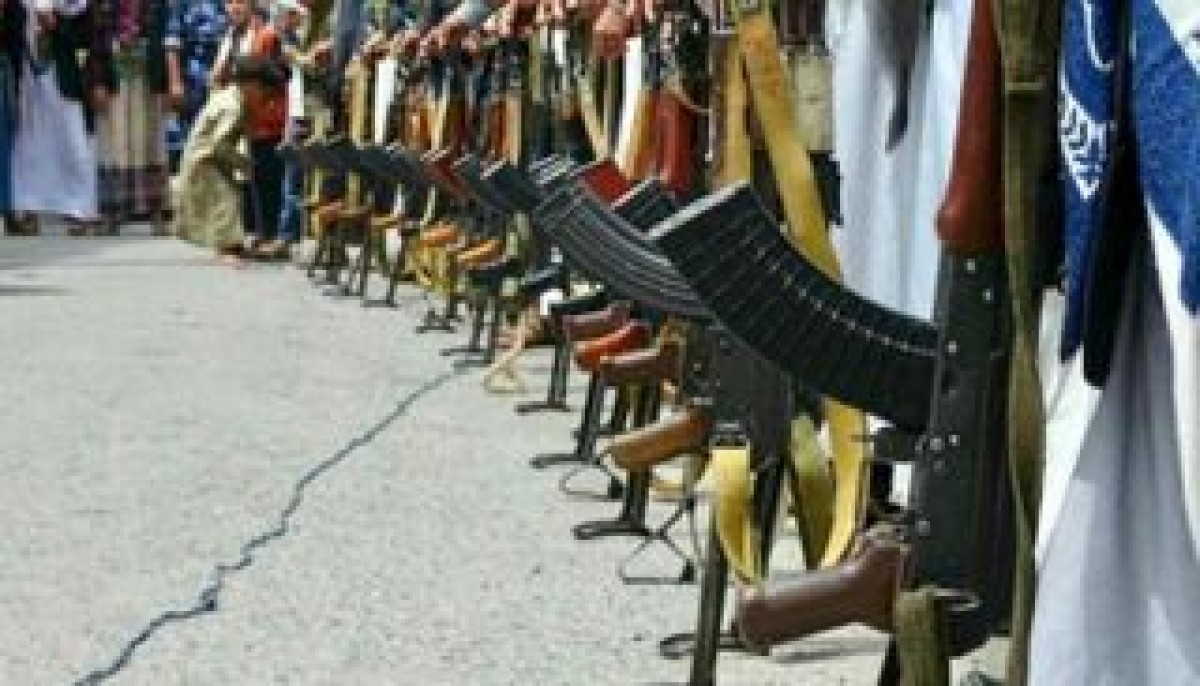Newspaper... Houthi ambitions are chasing merchants in Sanaa... Racism and nationalization


The Houthis will not be satisfied with imposing royalties and blackmailing merchants, as the hands of evil have intensified their persecution of businessmen as part of a racist Houthi war aimed at nationalizing the private sector and turning it into Houthi ownership.
The Houthi militias tightened their noose on merchants in Sanaa, most recently on Monday, after sending hundreds of gunmen and dozens of heavily armed patrols to besiege the home of Yemeni businessman Mustafa Tawfiq Al-Khamiri in Sanaa.
Mustafa Al-Khamiri said in a statement, “My house is still besieged with more than 30 tools by the Houthi leader called Nasser Al-Arjali, his gang, and patrols of the Central Security and the July 7 Police Department, and the roads leading to my house have been cut off.”
He stressed that the Houthi militias did not allow the Yemeni merchant “to enter the house, and a number of armed men and snipers deployed on the rooftops of neighboring houses, terrorizing our children and women in the house, and preventing entry and exit from the house.”
The Houthi militia invented a lawsuit for the merchant Al-Khamiri, who is from Taiz Governorate, to use it as a justification for besieging the house, preparing to storm it, and extorting billions of riyals from the merchant.
The merchant Al-Khamiri, in a public opinion video clip followed by Al-Ain News, accused the Houthi militias of practicing racism against merchants from Taiz Governorate, saying, “I am a merchant, this house of mine was built from the sweat of my forehead, before the Houthis were created. Enough racism, these are methods.” Dirty and whoever practices it.”
The Yemeni merchant called on the Houthi militias to stop blackmailing merchants through their various methods, as he has been a trader since the 1970s before the Houthi militias took control of Sanaa.
The Houthi militia's siege of the merchant Al-Khamiri comes months after the militia stormed "the home of businessman Ahmed Abdullah Al-Kbous and assaulted everyone in the house, including the children, in a brutal and barbaric manner."
The Houthis closed 35 stores belonging to Al-Kbous in Old Sanaa, which includes the largest wholesale markets in Sanaa, which are wholesale and retail trade stores.
The Houthi militias reshaped the structures of the chambers of commerce in Sana'a and the areas under their control by escalating new and urgent merchants to the management of the chambers of commerce in order to complete control over private sector funds and transfer private capital to Houthi ownership in a move toward clear totalitarian nationalization.
According to private sources in Sanaa told Al Ain News, the Houthis confiscated the assets, property, and money of large commercial groups in the coup areas and forced these groups to transfer these assets to Houthi leaders with documents and under coercion.
The sources confirmed that 3 large commercial groups were forced to transfer assets and funds to leaders affiliated with the Houthi militia, under pressure from the so-called “Security and Intelligence Service.”
The Houthi militias also forcefully imposed Houthi partners on merchants in Sanaa and plundered $2 million from the Al-Kbous Commercial Group during the past months, while providing lists of balances to banks to plunder them under false justifications.
Also, “the Houthis intended to impose supervisors on factories and production lines belonging to large commercial groups in the Hodeidah and Taiz governorates in preparation for controlling them and placing them under Houthi guardianship and control,” according to the sources.
Observers say that the Houthi militias aim to destroy the private sector and control major commercial houses, building a financial empire and a parallel economic entity in contrast to the state’s imports that they plunder, in an effort to prolong the war.